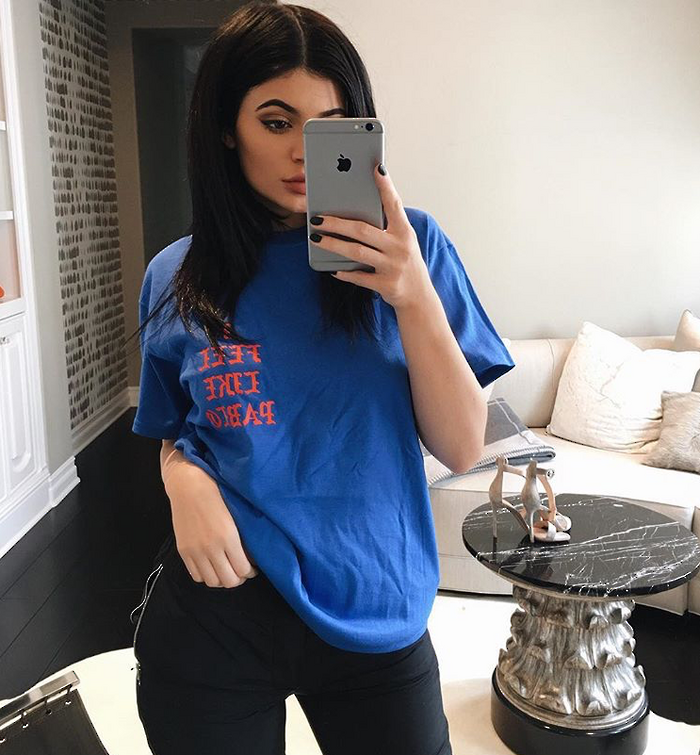High fashion isn’t ‘political’. It’s exclusive
Fashion houses have been praised for their politics this season. Peter Chappell calls out their hypocrisy and doubts their proclaimed activism.
Chanel is not for sale in Cuba. Neither is Dior, Prada, or Gucci. The average monthly salary in Cuba is around $150 a month. Even if these fashion houses did sell in Cuba, only the corrupt government officials could afford to buy them.
Yet in 2015, Havana played host to Karl Lagerfeld, who took his Chanel Cruise collection across the Atlantic, delighting the world with a 'mischievous', 'exotic', and 'exciting' catwalk show. A full orchestra played, Havana basked in the blue light of summer dusk. The Kardashians (and their TV crew) took their seats in the VIP section.
But how can this be considered ‘activism’ or 'political' if you're paying people to hold the placards on a catwalk?
It featured 'Che-inspired' berets covered in crystals, and khaki colours to mimic the revolutionary's uniform. Chanel was, we were told, 'shabby chic'. If you bought Chanel, you too could be rebellious and free-spirited, like Che on his motorbike. In stores now! The fact that Cuba still rations food and is living under a dictatorial regime didn't matter. 'Politics' and 'rebellion' is in fashion, and there is money to be made.
Back in 2014, Lagerfeld had his models parade down the Paris catwalk holding banners reading "Women's Rights are More than Alright" and "History is Her Story". This is the man who once said that the campaign to stop the use of size zero models was just the complaints of "fat mommies with bags of crisps". It is convenient he's jumping on the bandwagon now; all the youngsters are feminists. But how can this be considered ‘activism’ or 'political' if you're paying people to hold the placards on a catwalk?
The sentiments are noble. But don't believe for a second that big brands give a damn about true feminist activism. 'Political' fashion has made a comeback this year, in the so-called age of Trump and Brexit. Prabal Gurang's Fall 2017 show finale had models walk wearing black t-shirts emblazoned in white with "The Future is Female" and "This is What a Feminist Looks Like”. The passions of activists, people who actually believe in things and think they should be fought for, provide a useful cultural reference point for a number of fashion companies to exploit. Activism is young, intelligent, online and current. In comparison, the vapid 'politics' of Chanel is just another elite lifestyle aesthetic.
Fashion is art, and artists should be left to do what they like. But, what I can't stand is the copious praise that sycophants laud on fashion houses when they show the slightest bit of political conscious. Dior famously has a t-shirt printed with the words “We Should All Be Feminists”. It retails for a meagre $600. The person who is buying it is not engaging in a feminist act, but is saying, "I can afford a $600 t-shirt". What fashion houses are selling is a lifestyle of feminist activism; if you have a t-shirt which says you are a feminist, then you must be a feminist, right?
As Laura Craik put it in an article for Matches Fashion, "while I've no doubt Dior's Maria Grazia Chiuri passionately believes that We Should All Be Feminists.... I've no clue whether Dior offers flexible working hours for parents". I wouldn't go as far to say, as Jessa Crispin has, that "feminism has been entirely co-opted by consumerism", but the hypocrisy of the fashion industry, which has done more than most to propagate toxic gender norms over the years, is shocking.
Nearly everything is political, but not everything is activism. Can selling a t-shirt for $600 be activism when only 0.01% of the population can afford that? I thought activism was about the people, and collective action. We must stop pretending that these 'fashion statements' do anything more than titillate people on the front row. 'Politics' is in right now but, as is de rigueur, it will be out next season.

Typography: innovation or appropriation?
If fashion brands really want to be political and daring, they should start selling high quality clothes to normal customers and pay their workers properly, including suppliers. These companies sometimes trade off the fact people think more expensive clothes are more ethical, but this is not always the case. In Croatia for example, a report by the Clean Clothes Report found that suppliers for Benetton and Hugo Boss pay one third of what would constitute a minimum living wage to their workers. The same workers were also employed by Primark and Tesco.
Instead of superficial 'political' posturing, fashion houses should be using their artistic and financial position to exert real political change
 News / Colleges charge different rents for the same Castle Street accommodation2 March 2026
News / Colleges charge different rents for the same Castle Street accommodation2 March 2026 News / King’s hosts open iftar for Ramadan3 March 2026
News / King’s hosts open iftar for Ramadan3 March 2026 Theatre / Lunatics and leisure centres 4 March 2026
Theatre / Lunatics and leisure centres 4 March 2026 News / Angela Merkel among Cambridge honorary degree nominees27 February 2026
News / Angela Merkel among Cambridge honorary degree nominees27 February 2026 News / News in Brief: waterworks, wine woes, and workplace wins 1 March 2026
News / News in Brief: waterworks, wine woes, and workplace wins 1 March 2026








